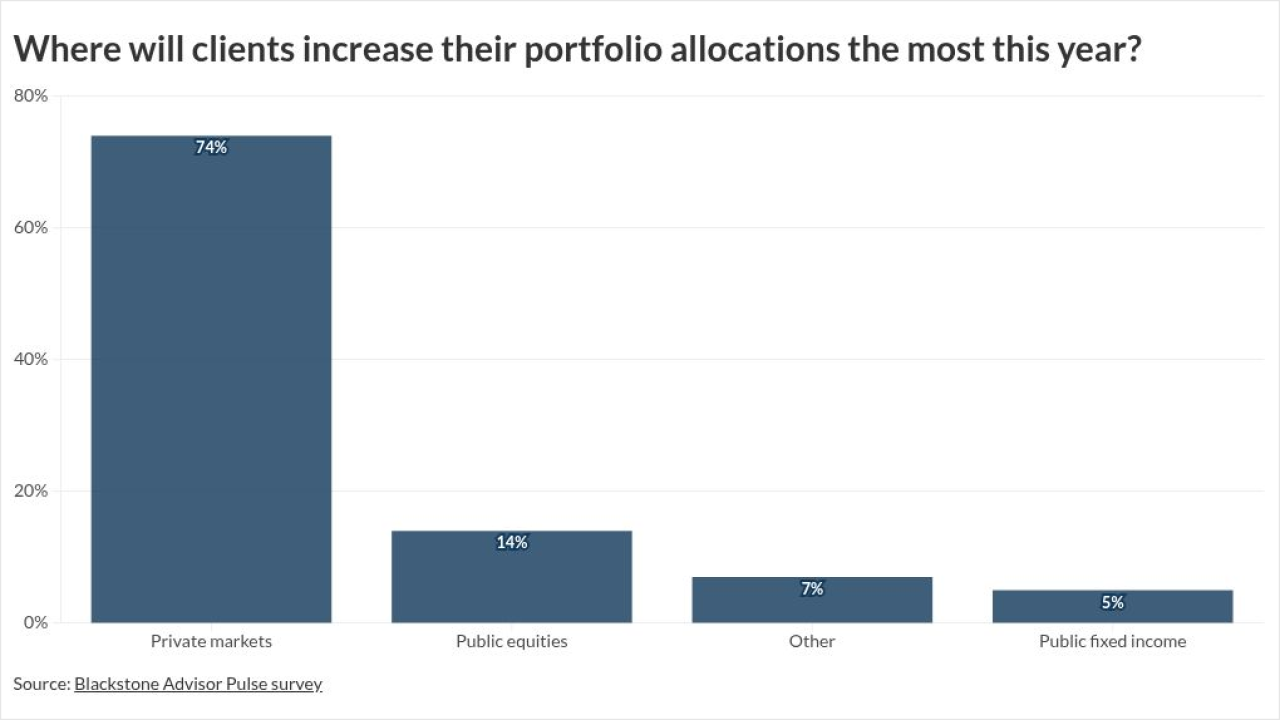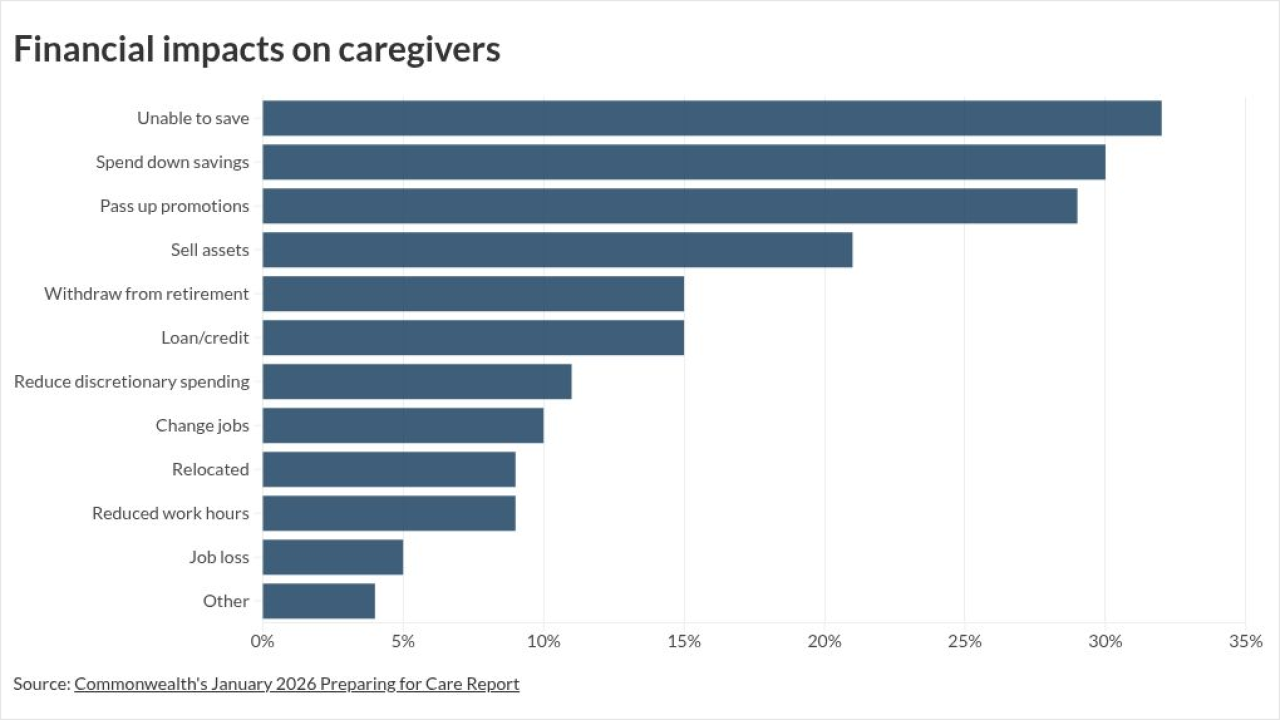It won't be easy in the aftermath of a global recession, but with the right mixture of transparency and expertise, wealth managers will be able to regain their status as trusted advisers.
"Transparency is the new gold standard of wealth management," said C. Steven Crosby, U.S. leader of PricewaterhouseCoopers' private banking and wealth management practice. "How managers and service providers keep clients informed regarding performance of their assets and integrity, financial health and processing status will be brand-differentiating."
Investors still need and want advice, but they will be much more selective about the quality of advice they receive, according to a new report from PricewaterhouseCoopers titled, "A New Era: Redefining the Way to Deliver Trusted Advice." Investors have raised the bar and are demanding more from their wealth managers, including more experience and the ability to provide peace of mind.
Good investment advisors will have to balance the long-term needs of their clients with the long-term needs of their firm, rather than focusing on the "flavor-of-the-month" products, Crosby said.
"Clients are starting to ask the tough questions," he said. "They want to know where their assets are at any point in time."
"Regulators are clearly focused on greater transparency, investors are demanding additional disclosures and more frequent reporting, and accounting and auditing firms are mandating improved process control and documentation," said Kirk Botula, chief operations officer at Confluence. "Funds must consider how technology and automation can improve their reporting processes in order to provide the speed, control and flexibility needed to weather a new era of reporting transparency and control."
Crosby said the financial crisis revealed a huge gap in the level of expertise among investment advisors.
"Less than 20% of advisors in 2008 were of a high caliber," he said, adding that most were weak and ineffective, had a significant lack of experience and were unable to adapt to change.
"The financial crisis and the breach of trust by some managers has had a profound impact on investor confidence," said John Garvey, U.S. leader of the financial services advisory practice at PricewaterhouseCoopers. "The DNA of world wealth has changed in terms of what clients want, demand and expect from wealth managers and service providers. This is a challenge that will require investments in technology and talent, plus discipline and ruthless execution."
No More Secrets
Investors need to be able to trust their money managers, but after several high-profile and secretive money managers were revealed to be running billion-dollar Ponzi schemes, the new investment motto should be Ronald Reagan's "trust, but verify."
"The era of absolute banking secrecy is over," Crosby said.
While there may always be clients from troubled or unstable jurisdictions who seek offshore management, the international pressure for increased transparency will result in a much more complementary and open operating model, what the PricewaterhouseCoopers report calls "a new world of compliant confidentiality." Most wealth managers will not want the reputational risk of operating in non-transparent jurisdictions, the report said.
"People want to stamp out fraud and be able to show clearly to clients that they are transparent," Crosby said. "In bad times, people want reassurance. The consuming public needs to ask, 'Who's the auditor? Where are my assets? Can I get information on my assets in real time?'"
According to a survey by Barclays Wealth titled "New Horizon, New Behavior," 46% of investors say the financial stability of their investment provider will be a prime concern in the year ahead, up from 33% last year. Approximately 35% of survey participants said they would be focusing on the quality and transparency of investment information, compared to 25% a year ago.
"There has to be more transparency on what fees are, and a lot more understanding of the risks of different products," said Carol Pepper, founder and CEO of the New York-based advisory firm Pepper International. "We need a lot more plainly written, understandable disclosure of what products are and how they work."
Better Relationships
Those financial advisers who had experience showed their true colors during the crisis and provided the individual, personalized advice clients sought, Crosby said. Firms should recognize and reward the efforts of their best financial advisers and try to retain their expertise, he said.
Small, well-run boutique firms will be particularly well-positioned to thrive in the new world of increased transparency, the PricewaterhouseCoopers report said.
"The days of simply pushing product are over," the report said. "Client service and brand differentiation now trump history and brand awareness. The quality of advice is now a crucial differentiator. The focus has shifted from client acquisition to client retention through increased interaction and better relationship building."
The report found that the most profitable wealth managers had fewer clients and more time to offer individual advice and financial planning.
"High-net-worth clients now want much more transparent product offerings, product suitability, robust due diligence and real-time, customized reporting with proactive risk/reward analysis versus a point-in-time snapshot of their wealth and holdings," the report said.
Private clients will want to know about the integrity surrounding their wealth and personal data, as well as the soundness of the institutions that serve them, the report said.
"While the client and asset attrition phase of the crisis will eventually pass, the industry will be very different in the future," Garvey said. "The winners will be the firms that can provide investors with acceptable performance, coupled with extraordinary levels of insight and transparency around their assets, investment strategies and products. These firms will once again become trusted advisors to the wealthy."
(c) 2009 Money Management Executive and SourceMedia, Inc. All Rights Reserved.
http://www.mmexecutive.com http://www.sourcemedia.com/





